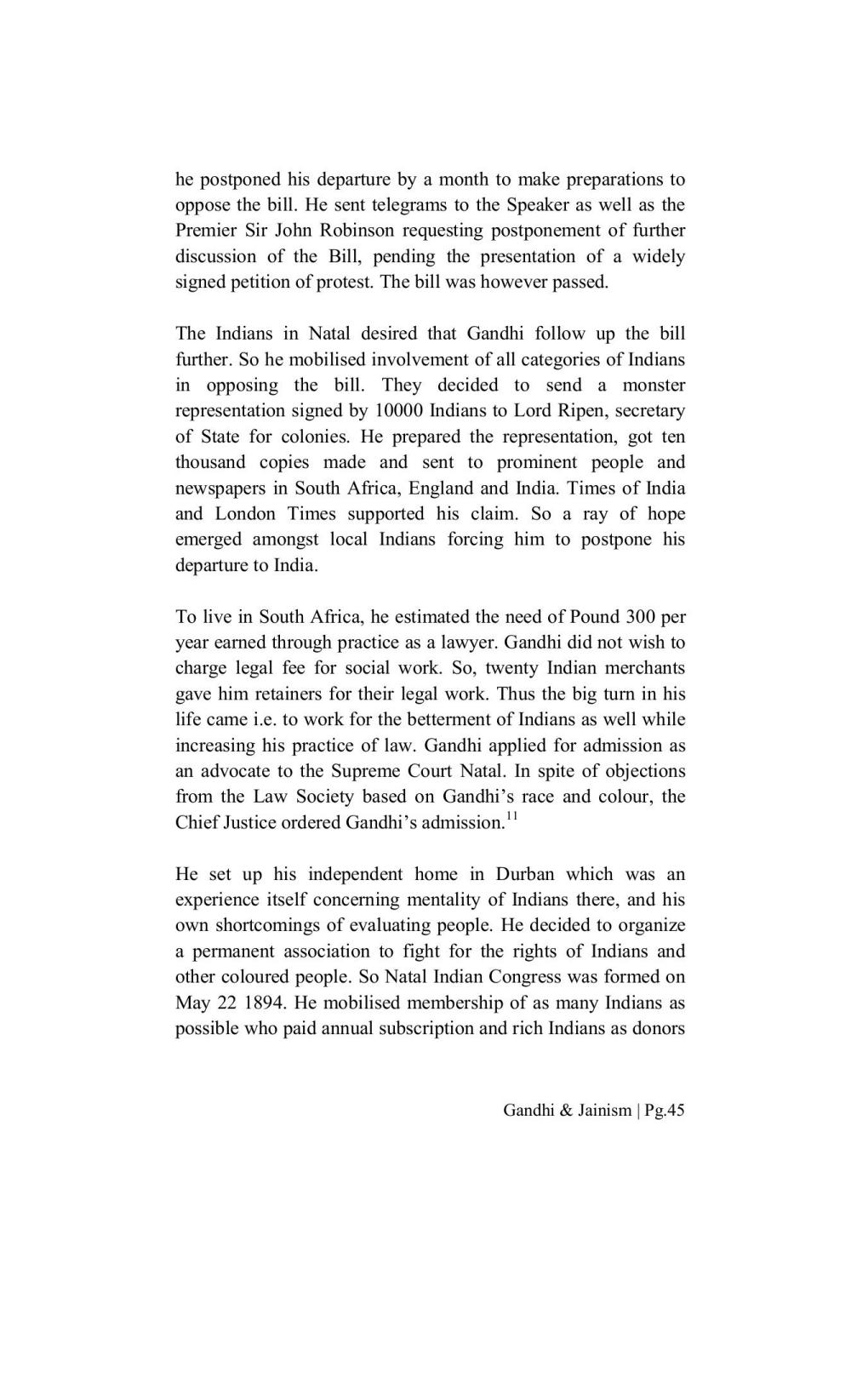________________
he postponed his departure by a month to make preparations to oppose the bill. He sent telegrams to the Speaker as well as the Premier Sir John Robinson requesting postponement of further discussion of the Bill, pending the presentation of a widely signed petition of protest. The bill was however passed.
The Indians in Natal desired that Gandhi follow up the bill further. So he mobilised involvement of all categories of Indians in opposing the bill. They decided to send a monster representation signed by 10000 Indians to Lord Ripen, secretary of State for colonies. He prepared the representation, got ten thousand copies made and sent to prominent people and newspapers in South Africa, England and India. Times of India and London Times supported his claim. So a ray of hope emerged amongst local Indians forcing him to postpone his departure to India.
To live in South Africa, he estimated the need of Pound 300 per year earned through practice as a lawyer. Gandhi did not wish to charge legal fee for social work. So, twenty Indian merchants gave him retainers for their legal work. Thus the big turn in his life came i.e. to work for the betterment of Indians as well while increasing his practice of law. Gandhi applied for admission as an advocate to the Supreme Court Natal. In spite of objections from the Law Society based on Gandhi's race and colour, the Chief Justice ordered Gandhi's admission."
He set up his independent home in Durban which was an experience itself concerning mentality of Indians there, and his own shortcomings of evaluating people. He decided to organize a permanent association to fight for the rights of Indians and other coloured people. So Natal Indian Congress was formed on May 22 1894. He mobilised membership of as many Indians as possible who paid annual subscription and rich Indians as donors
Gandhi & Jainism
Pg.45




